Breast cancer patient Alison Day’s battle to help other stage four, rare cancer sufferers
Alison Day fully expects to lose her life to a vicious form of breast cancer. But she is still fighting to change the system and save others. Today, she tells her heartbreaking story in the hope the government can do something to alleviate the suffering, and financial ruin, of thousands of patients every year.
NSW
Don't miss out on the headlines from NSW. Followed categories will be added to My News.
Before breast cancer, Alison Day was “an attractive, fit woman with full breasts and long dark hair”.
Now she faces her own mortality with stage four metastatic cancer, scrimping and saving for hideously expensive drugs not yet approved in Australia.
In her quest is to simply buy more time with her two young daughters, Alison tells her heartbreaking story in her own words in the hope the federal government can do something to alleviate the suffering of thousands of patients every year.
Here’s her story:
I would love nothing more than to still be alive to see my eldest daughter finish her HSC this year. I am a 52-year-old mother of two daughters, aged 10 and 17, and I have been told I am dying, in fact, I may have one or two months to live.
If I am “lucky” I could survive another 18 months, but the timescale is governed by my ability to afford to pay tens of thousands of dollars for the drugs that may extend my life.
You will likely know of someone who has died of cancer — perhaps they will be young and it will be considered particularly cruel that their future has been stolen, perhaps it’s a friend of a friend, or perhaps it is a much loved relative.
I, too, once watched from the shadows as I saw others die or suffer from cancer around me, but never once thought that it would be me.
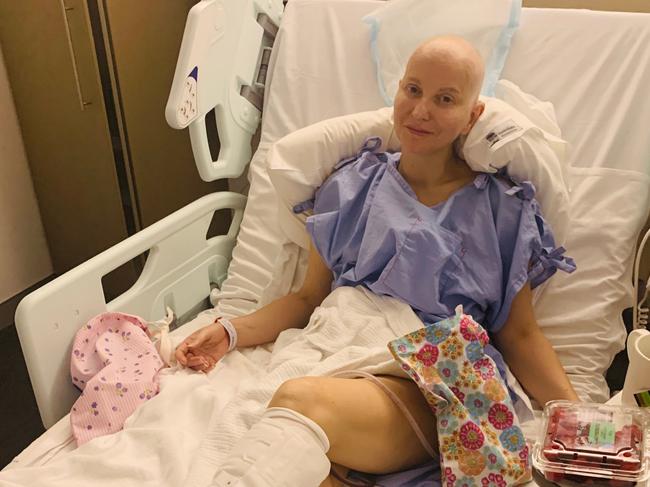
In short, my story is hardly newsworthy — you have read so many stories of those in hospital beds telling you what they wished that they had or had not done as they lay dying — so why tell it? Because as my life gets smaller and shorter, I feel a need to try to infuse the time I have left with a purpose.
I am desperate to share my story so that others might be saved from the trepidation and uncertainty that I feel.
I would like to think that in the future things might be different — they could be if more people knew what we face and the inherent limitations of the current cancer care funding strategies.
I was treated as an early stage breast cancer patient for eight months in 2020 but my body did not respond to the “poison, cut, burn” (chemotherapy, surgery and radiation) mix that has been the standard of care for most cancer patients since the 1950s.
The cancer has metastasised to my lung, leaving me with the dreaded diagnosis no one wants of “stage four”.
This means that my condition is terminal. I will probably not survive.
Just two years ago, a friend was diagnosed with stage four colorectal cancer. It prompted me to have every test possible to reassure myself I was “safe”.
In September 2019, I was recalled by my GP, not for breast cancer but for a slight abnormality of my uterus wall found on one of the tests. I asked about all the other test results I had taken and specifically asked about my breast ultrasound — and was told that it showed “just cysts”.
I was to find out a year later that this was wrong. Not only were the cysts not “simple cysts”, they were in fact complex cysts, already showing signs of cellular change.
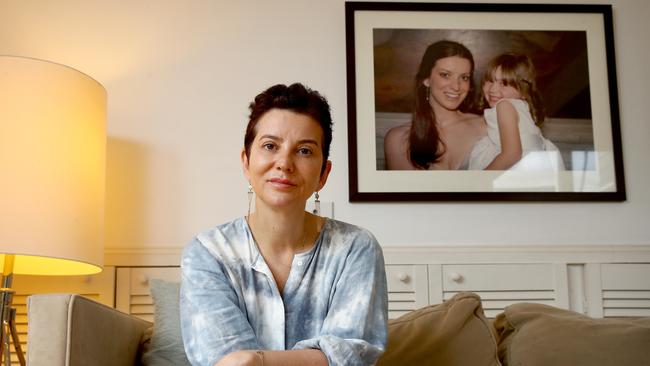
From October to Christmas 2019 I felt unwell, and one of the “cysts” in my left breast seemed to grow harder and more prominent every day. I felt an incredible thirst I could never quench, especially at night, and my left hand had a pins and needles sensation. In short I did not feel “normal”.
I went back to the GP several times before Christmas that year, asking her what was going on.
The GP sent me for blood tests, which showed a huge inflammation level in my body, but she thought it was more likely that I had had a heart attack and I was put on a heart monitor for several days and had my blood retested.
I went back to the GP and showed her the lump in my left breast again and insisted they give me a further ultrasound.
The ultrasound technician remembered me from the ultrasound a few months before and as she scanned my left breast I saw her face change from a nonchalant, relaxed expression to a frown. She told me she needed to speak to a doctor in another room. I knew then I was in trouble.
A day later I lay on the examination bed as the doctor taking the biopsy told me he was sorry but he knew that this was a very nasty cancer. He was right — it was.
By the time I was correctly diagnosed I had a 5.6cm tumour of the worst form of breast cancer — triple negative — the “rottweiler” of the breast cancer world. It was a cancer with no targetable hormonal pathways and at that moment the tumour was already classified as “stage three”.
There is always a “before cancer” and an “after cancer” date. A date where you slip from the world of normality, work, kids, routines, parties, dinners, worrying about simple things, to the world of the chronically ill.
A world full of doctor’s rooms, hospitals, chemo bags and radiation machines, bodies that start to fail with neuropathy in hands and toes, thrush in your mouth, constipation or bowel inflammation where you experience diarrhoea five to six times a day.
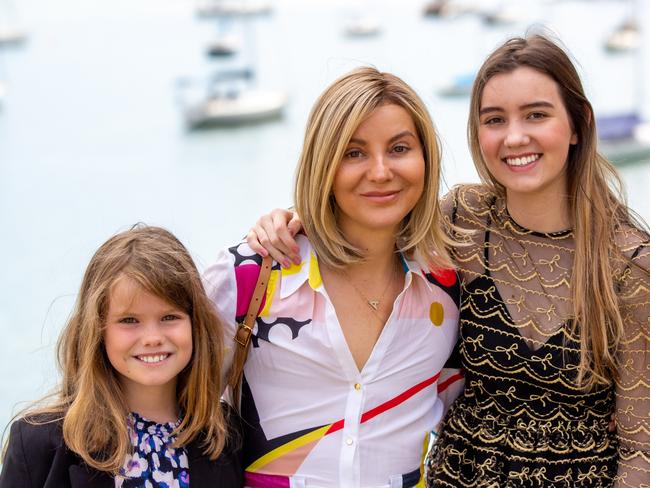
This place changes your physical identity. In my case, at diagnosis, I was an attractive, fit woman with full breasts and long dark hair.
Cancer has given me a body which is strangely asexual, with two long flat scars where no breasts or nipples remain, where your hair and eyebrows and eyelashes fall away and you are instantly recognisable as a “cancer patient”.
Cancer transforms you in a matter of weeks from being the last to leave the party, to the person who struggles to move from bed to the sofa and back again.
Your identity changes and your friendships change.
In my case most of my friendships got stronger as my friends moved around me with the greatest of love to support me, shop for me, cook for me, come to the hospital with me, send funny memes and flowers and raise money for crazily priced cancer treatments.
Most of my friends help me to survive, to get up and carry on.
A handful are there at the start but as the relentlessness of the disease becomes too much or as I draw away when the bad news becomes overwhelming, some drift — or I let them go.
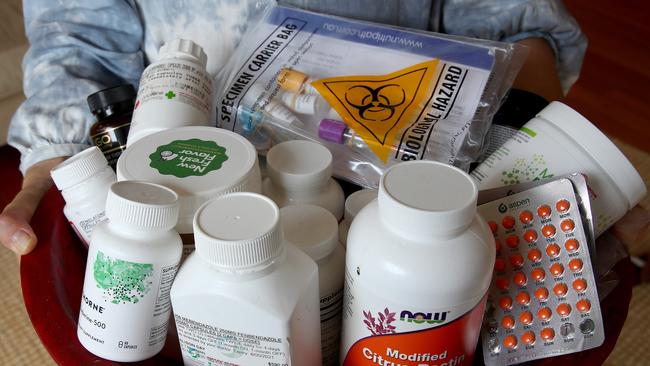
Breast cancer survival has now reached 91 per cent but there are those like me, the ones with the rottweiler, who are left to navigate and bargain for more time on this planet based on access to new drugs — and cold hard cash is the compass.
Only 5 per cent of cancer research funds is spent on metastatic breast cancer research, yet metastatic disease kills 90 per cent of all breast cancer patients. This has to change.
Currently I pay around $7500 each month for a mix of immunotherapy; alternative treatments such as hypothermia, off-label drugs and supplements, and for the opinions of three different medical professionals on how to slow down the spread of my disease.
Those who find themselves in my shoes have the added weight of wondering how they will afford a viable treatment without the humiliation of GoFundMes.
You either rely on the kindness of generous friends and/or the requirement to remortgage your home — at a time when the primary objective should be to focus on battling the disease that continues to ravage your body.
You need to keep working to pay for treatment and pray for the support of an employer who will work around the days on which you have endless medical treatments.
If you have a rare cancer in Australia, or you are a stage four cancer patient, you often face financial ruin to fund medical treatments not yet approved here.
Many, like me, have to pay $10,000 for molecular testing, the future of personalised cancer treatments that should really be the standard of care today.
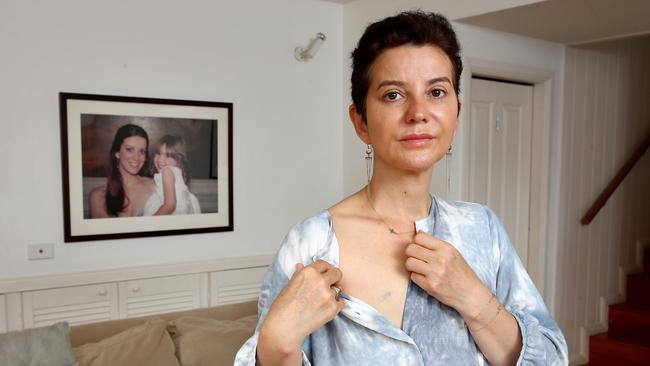
Molecular testing identifies specific biomarkers in a cancer patient’s tumour and can be used to select a cancer therapy tailored to those biomarkers.
While there is a trial in Australia called MoST that offers funding to some advanced or rare cancer patients, I was ineligible and had to pay the $10,000 through a US laboratory test called Caris — this helped me identify the most likely drugs to control my disease.
In my case, one drug — Trodelvy — was promising for my cancer but is not available in Australia and even if I could afford to import it (at a cost of $21,000 every three weeks) it is FDA-approved but not TGA-approved so no one would administer it to me.
Trodelvy is helping women stay alive longer across America but, despite my repeated calls to the drug manufacturer Gilead, I and thousands of non-American women globally with triple negative metastatic breast cancer cannot access it.
The other drugs that molecular testing found may work for me are checkpoint inhibitors, better known as immunotherapy.
There is an immunotherapy drug called Keytruda that is free for melanoma patients but not for those with triple negative breast cancer, so I pay $6000 for a bag every three weeks. $40,000 every three months.
It is so unfair.
At a minimum, molecular testing and the treatments that result should be funded by the government — and not by stage four cancer patients who are already sick and in crisis. If you don’t fight for this, you are dead.
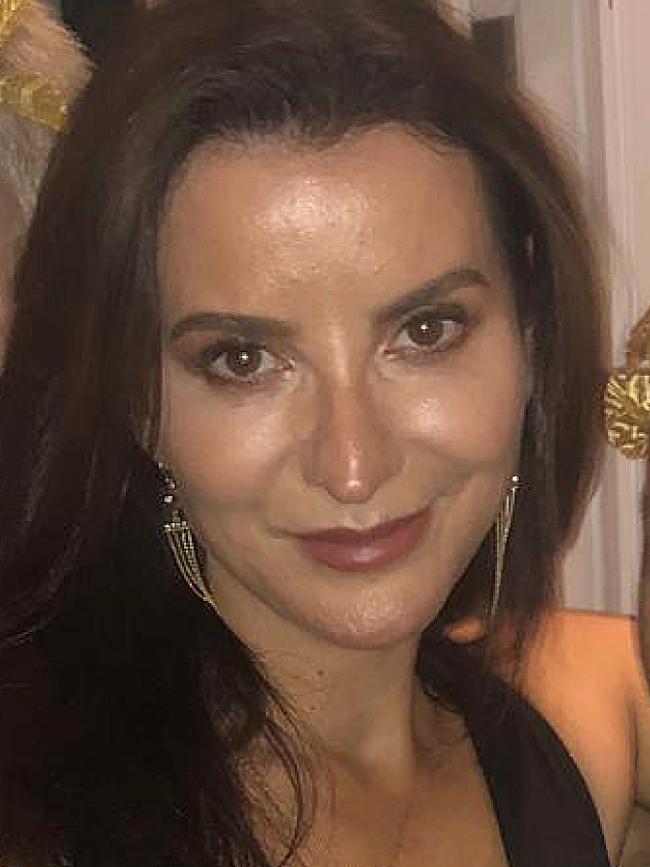
We all know death is coming for us one day but when that day is 35 years before you expect it, you swing between the usual stages of despair, denial, anger, surprise, and (in my case) settle on living with a mixture of desperate hope and pragmatic acceptance.
I try to jettison all but the simple stuff. I exalt in the company of my children even if we still quibble about who needs to wash the dishes.
I have found the little things become the big things, the beauty of feeling sunshine on my face, waking in the morning and saying a prayer, the pleasure of seeing a plant that breaks into flower in my garden, the face of my dog as I walk in the door.
The element I cannot navigate is knowing that I won’t watch my daughters become the women that I so longed to see them become. This is the part of the disease I cannot accept.
Sometimes I watch my children as they sleep just like I did when they were babies and I literally break when I watch the back of their heads and their bodies rise and fall with their breath.
I create books of photos of the three of us and write them letters, placed inside a keepsake box and hope beyond hope that maybe they won‘t have to open them without me and that I will be the miracle 1 per cent — the rare long term metastatic triple negative cancer survivor.
On other days, the hope dissipates and I think of the missed 21st birthdays, the graduations, their weddings, of them giving birth to their children — all of the elements of their lives that I will miss and then I howl with pain, curl into a ball of hot, wet tears and break apart.
My grief is compounded as I see my two daughters grip each other ever more closely now because when I die they will lose this home and lose each other and live apart.
I am not ready to leave them before my role as their mother is done. I miss them after a weekend apart. How will I be able to say goodbye to them if this cancer does not release its grip?
We need the urgency that focused the world to produce the coronavirus vaccine, or when it was politicised effectively, the funds that led to the HIV drugs to control and now to prevent the disease that once killed so many.
We need free molecular testing and the concomitant drugs that rare cancer patients and stage four cancer patients deserve in a country like Australia to become the standard of care.



